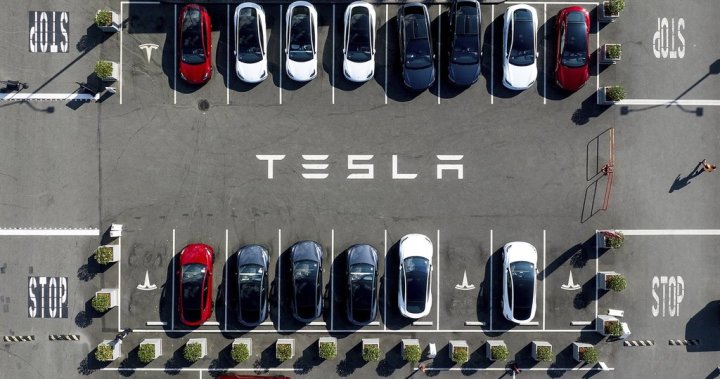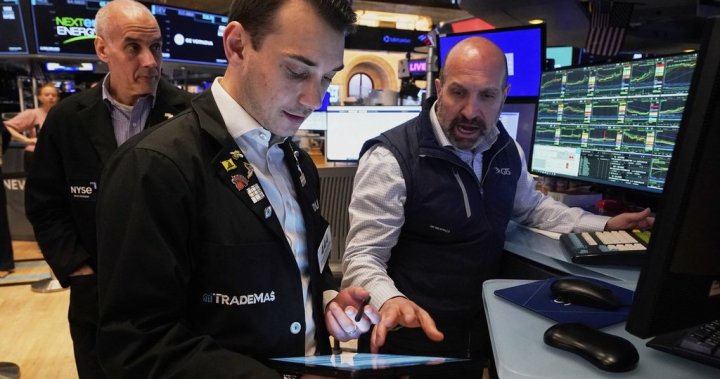Tesla sees 70% drop in Q1 profits amid backlash against Musk – National

Elon Musk says he’ll dedicate more time to Tesla starting in May after the company reported a big drop in first-quarter profit. The company has faced angry protests over Musk’s leadership of a federal government jobs-cutting group that has divided the country.
Tesla, based in Austin, Texas, said Tuesday that quarterly profits fell by 71% to to $409 million, or 12 cents a share. That’s far below analyst estimates. Tesla’s revenue fell 9% to $19.3 billion in the January through March period, below Wall Street’s forecast.
The disappointing results come as the company struggles to sell cars to consumers angry over Musk’s role in the Trump administration. Musk also has publicly supported far-right politicians in Europe and alienated potential buyers there, too.
Some Tesla investors have complained that Musk has been too distracted by his role at the Department of Government Efficiency, or DOGE, to effectively run Tesla.
“This is a big step in the right direction,” said Wedbush Securities’ Dan Ives, referring to Musk’s time commitment. “Investors wanted to see him recommit to Tesla.”
Tesla’ stock has fallen more than 40% this year but rose more than 3% in after-hours trading.

Morningstar analyst Seth Goldstein said earlier reports of plunging sales that had tanked the stock made the results almost predictable.

Get daily National news
Get the day’s top news, political, economic, and current affairs headlines, delivered to your inbox once a day.
“They’re not particularly surprising given that deliveries were down,” Goldstein said, adding that the company is still generating cash. “It was good to see positive cash flow.”
The company generated $2.2 billion in operating cash versus $242 million a year earlier.
Tesla investors will be listening closely for updates on several strategic initiatives. The company is expected to roll out a cheaper version of its best-selling vehicle, the Model Y SUV later in the year. Tesla has also said it plans to start a paid driverless robotaxi service in Austin, Texas, in June.
Its closely watched gross margins, a measure of earnings for each dollar of revenue, fell to 16.3% from 17.4%.
The company that once dominated EVs is also facing fierce competition for the first time.
Earlier this year, Chinese EV maker BYD announced it had developed an electric battery charging system that can fully power up a vehicle within minutes. And Tesla’s European rivals have begun offering new models with advanced technology that is making them real alternatives, just as popular opinion in Europe has turned against Musk.

Investors expect Tesla will be hurt less by the Trump administration’s tariffs than most U.S. car companies because it makes most of its U.S. cars domestically. But Tesla won’t be completely unscathed. It sources some materials for its vehicles from abroad that will now face import taxes.
Tesla warned that tariffs will hit its energy storage business, too.
“While the current tariff landscape will have a relatively larger impact on our Energy business compared to automotive,” the company said, “we are taking actions to stabilize the business in the medium to long-term and focus on maintaining its health.”
Retaliation from China will also hurt Tesla. The company was forced earlier this month to stop taking orders from mainland customers for two models, its Model S and Model X. It makes the Model Y and Model 3 for the Chinese market at its factory in Shanghai.
The company side business of selling “regulatory credits” to other automakers that fall short of emission standards boosted results for the quarter.
The company generated $595 million from credit sales, up from $442 million a year ago.
© 2025 The Canadian Press







